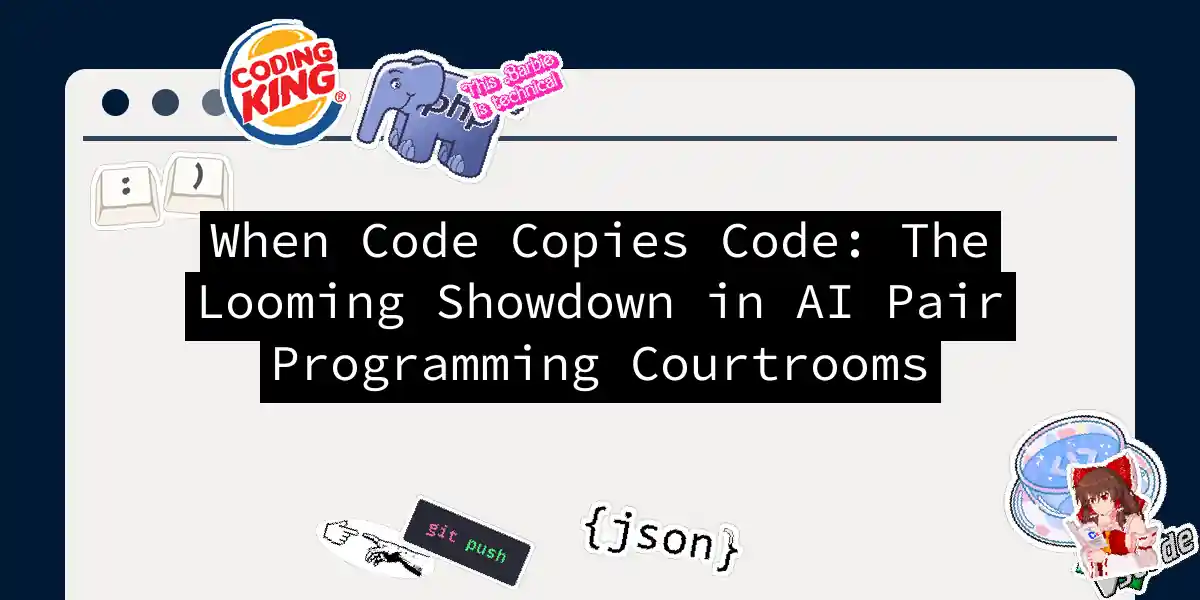Let’s face it - we’ve all borrowed a Stack Overflow snippet or twenty. But when Microsoft’s GitHub Copilot does it at industrial scale, we get legal drama hotter than a segfault in production. Grab your popcorn, folks - the robots are getting sued!
The Legal Landscape (Or: How I Learned to Stop Worrying and Love the DMCA)
The current class action lawsuit (Doe v. GitHub, Inc.) alleges three spicy violations:
- License laundering - Copilot’s suggestions often omit original attribution
- DMCA shenanigans - Removing copyright information from generated code
- Contract breach - Violating open-source license terms Here’s what an MIT license requires that Copilot might ignore:
# Original code with license header
# Copyright (c) 2024 Jane Doe
# MIT License: https://opensource.org/licenses/MIT
def quantum_flux_capacitor():
"""Makes time travel possible in 40 lines or less"""
return "88 mph!"
# Copilot suggestion without attribution
def time_machine_controller():
return "Where we're going, we don't need roads!"
The plaintiffs’ best ammo? Those 11 open-source licenses (MIT, Apache, etc.) that all demand attribution. It’s like Copilot took the “open” in open source a bit too literally.
Predictions: When Will the Hammer Fall?
Based on court documents, here’s my developer-to-lawyer translation:
| Scenario | Probability | Impact | Timeline |
|---|---|---|---|
| Fair Use Win | 40% | Business as usual | 2026+ |
| Settlement | 35% | OSS license updates | 2025 |
| Loss | 25% | AI training overhaul | 2026-2027 |
The smoking gun? Look for these telltale signs:
- Increased “Copyright Poker” - GitHub’s recent delay of Copilot limits smells like legal prep
- License metadata arms race - New tools emerging:
# Prototype license header detector
rg --type-add 'license:*.{LICENSE,MD}' \
-tlicense 'MIT|Apache|GPL' \
node_modules/
- Stack Overflow 2.0 - Watch for code registries offering “AI-safe” snippets
Mitigation Strategies (Because CYA > YOLO)
- Add license headers like they’re going out of style
# SPDX-License-Identifier: MIT
# AI-Training-Approved: True
def ai_friendly_function():
return "This code is safe for robot consumption"
- Implement Copilot audit trails
- Adopt the new .aignore standard
# .aignore
*.py MIT
*.js Apache-2.0
Dockerfile Proprietary
The real winner here? Lawyers. They’re the only ones getting rich quick in this gold rush. But for us devs, it’s a wake-up call - license headers are the new avocado toast. Basic, but essential millennial survival gear. What’s your take? Will we see a flood of AI-generated copyright claims, or is this just legal spaghetti code that’ll never compile? Drop your hot takes below - let’s get this debate hotter than a misconfigured AWS bill!
